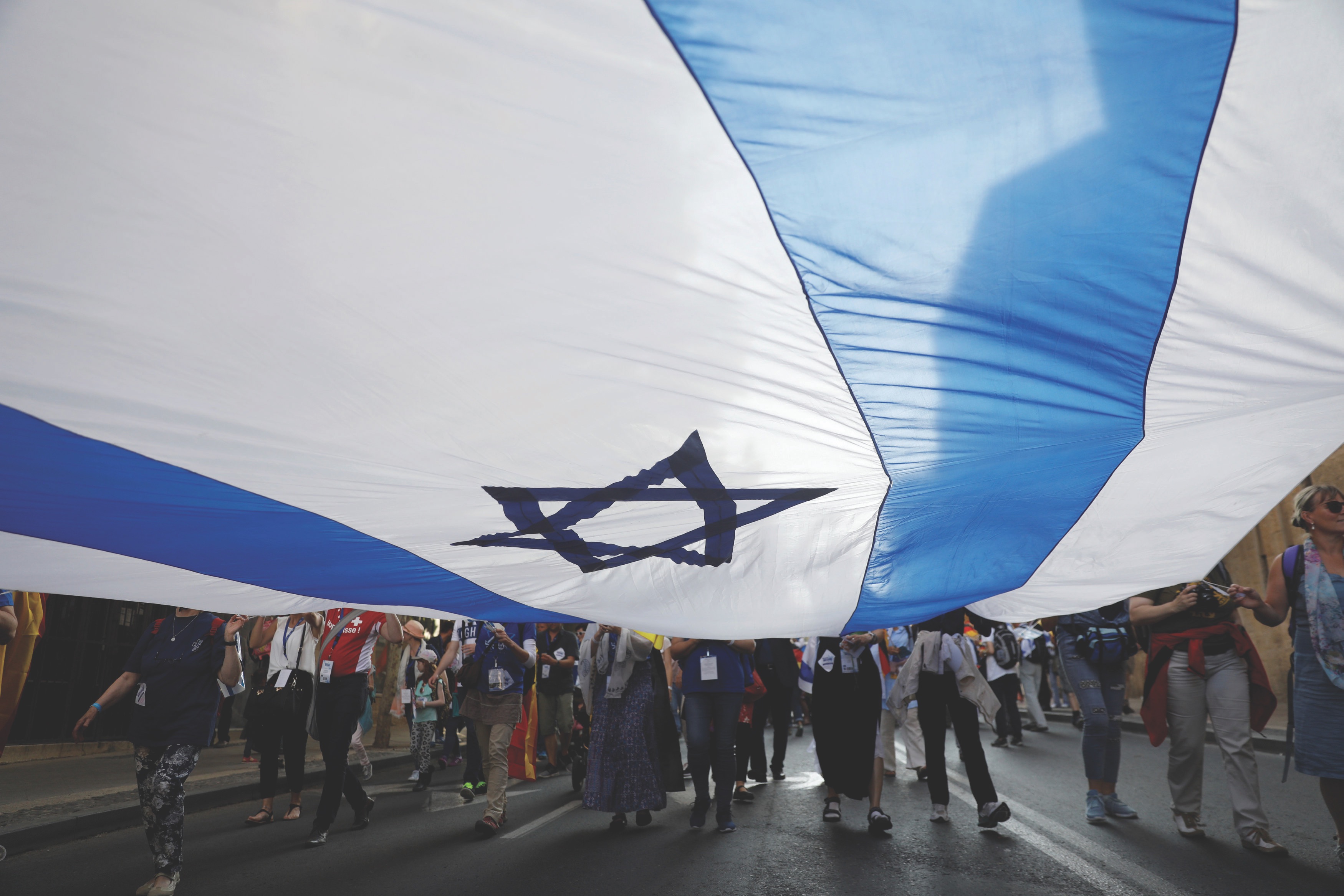 People take part in the March of the Nations, in which Christians from around the world and Israelis protest against anti-Semitism and in support of Israel, in Jerusalem, May 15, 2018. REUTERS/Ronen Zvulun
People take part in the March of the Nations, in which Christians from around the world and Israelis protest against anti-Semitism and in support of Israel, in Jerusalem, May 15, 2018. REUTERS/Ronen Zvulun The historic and ancient city of Jerusalem has been the destination of countless religious pilgrimages for Jews, Christians and Muslims over the centuries. Yet the city also has been at the heart of bloody battles, crusades and, more recently, the Israeli-Palestinian conflict.
So it should come as no surprise that a holiday aimed at celebrating the holy city would spark controversy and highlight competing narratives. Such is the case with Jerusalem Day, a national holiday in Israel commemorating the city’s reunification following the Jewish state’s victory in the 1967 war, during which it gained control over east Jerusalem.
By coincidence, Jerusalem Day this year fell on May 13, one day before the inauguration of the new United States Embassy, which follows President Donald Trump’s recognition in December of Jerusalem as Israel’s capital.
“Traditionally, [Jerusalem Day] been celebrated more by the national-religious in Israel, even though, of course, it’s a national holiday,” Emmanuel Navon, a lecturer at Tel Aviv University and fellow at the Jerusalem Institute for Security Studies, explained to The Media Line.
“It is true that in terms of the civilian population, the ultra-Orthodox don’t really care and the secular [population] doesn’t care so much, either,” he conceded, before qualifying that some elements of the holiday unify Israelis.
“When the eastern part of [Jerusalem] was ruled by Jordan, there was no free access to places of worship for the Jews and there was no freedom of religion,” Navon said. “It’s only since Israel reunified the city that you have this freedom of religion and respect for all holy sites. I think this is something that most people recognize.”
Nowhere, however, is the ideological split more apparent than at the Jerusalem Day right-wing Flag March, in which thousands of people parade through the Old City’s Muslim Quarter waving Israeli flags. In the past, the parade has been marred by some participants using anti-Arab epithets and engaging in physical violence.
“People who say it’s divisive don’t have to take part in it,” Navon said. “It’s not the only way to celebrate Jerusalem’s reunification. People can choose what kind of event they want to attend or not on Jerusalem Day.”
“It’s only since Israel reunified the city that you have this freedom of religion and respect for all holy sites. I think this is something that most people recognize.” — Emmanuel Navon
Some people are already offering more inclusive alternatives.
“We think [Jerusalem Day] is an important day for reclaiming the city because in the last few years [it] has turned into something a little more nationalistic,” said Michal Shilor, the Activism for Tolerance Campaign Coordinator at the Jerusalem Intercultural Center (JICC).
Now in its third year, the stated goal of the Jerusalem Tolerance group is to help Jerusalemites undertake initiatives that promote tolerance and diversity. It has become a platform for dozens of Jerusalem Day events aimed at combating the Flag March, which many consider offensive.
“This year there are 80 events within [the span of] 36 hours that are talking about tolerance,” Shilor noted, including tours of ultra-Orthodox neighborhoods, literary gatherings and encounters with people with disabilities, among other things.
“It’s not that there’s an issue with celebrating Jerusalem Day,” she said. “It’s more that the way it has been celebrated in the last few years [has sometimes] turned into violence and racism.”
U.S. and Israeli officials attended a May 14 ceremony marking the official opening of the new embassy in Jerusalem’s Arnona neighborhood. The ramifications of such a move are still not fully understood, but analysts agree it marks a turning point in the city’s history.
According to Navon, “It will be remembered as a major event.”
This article was originally published on The Media Line.





















 More news and opinions than at a Shabbat dinner, right in your inbox.
More news and opinions than at a Shabbat dinner, right in your inbox.